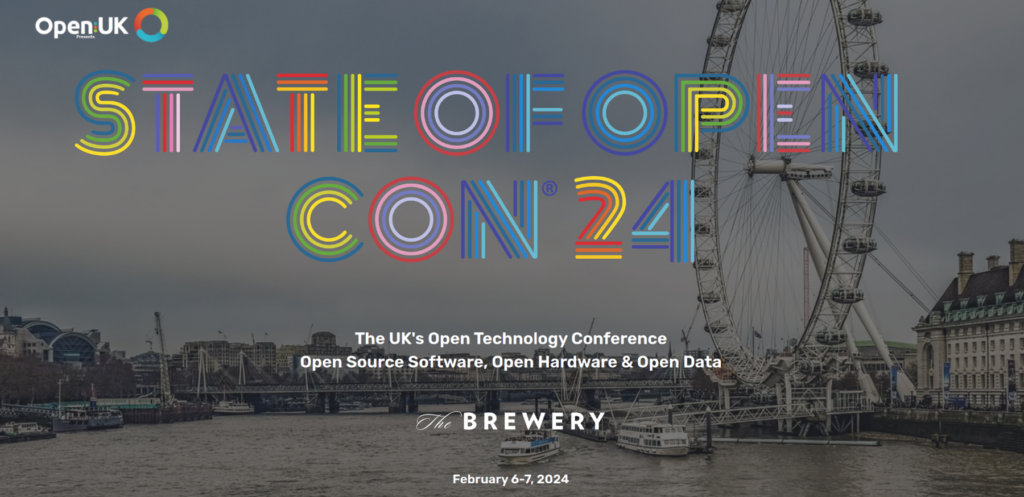
This year’s State of Open Con schedule focuses on establishing the future of open source across software, hardware and data.
Open source communities are reliant on a significant amount of unpaid labour. That makes for an interesting dichotomy that is emphasized during economic downturns. Since, theoretically, anyone should be able to join an open source project, it should have lower barriers to entry. But having free time time do free work — or being employed by a big tech company specifically to contribute to open source — is entirely based on privilege. After all, not everyone works for a big tech company. Even less are after about 18 months of tech layoffs. And certainly not everyone can afford to work for free. That’s why open source communities have abysmally less diversity than the already abysmal tech industry as a whole — women and people of colour make up the brunt of the unpaid labour force as it is.
Add to this, half of open source maintainers work unpaid, while, according to Github, another half of projects have only one or two maintainers. That makes the leadership of crucial segments of the global software supply chain remains uncertain.
All this is considering that an estimated up to 96% of code is open source. That means that open source, while often still struggling at the community level to find economic sustainability, is driving much of the world’s economic sustainability.
So what is the future of open source? That’s what this year’s second edition of the State of Open Con 2024 looks to answer. On the 6th and 7th of February, SOOCon24 brings together 160 speakers from the British open source world and beyond to help elucidate this future across eight jam-packed tracks:
- Careers and Entrepreneurs
- Finance
- Government, Law and Policy
- Open Data
- Open Hardware
- Open Source Software
- Security
Each conversation at this remarkably diverse and inclusive event looks to not only settle on the current state of open source within the U.K. and globally, but to collaborate to build a more sustainable future of open source. That’s why, like its leading organisation OpenUK, State of Open Con looks to not only focus on open source software, but open data and open hardware, as they interconnect as the three pillars of our open future.
The second annual event doesn’t just bring together businesses and individual contributors but it features many governments and non-governmental organisations — because that’s how broadly the open source world impacts. We will talk about the United Nations Data Centre challenge and see examples of how the U.K. government heavily leverages and contributes to open source.
These two days bring a stellar mix of technical and non-technical talks geared towards small, medium and large enterprises, open source communities and leadership, and, of course, those individual contributors that are often the stalwarts of sustainability. These range from how to leverage open source to future-proof your tech skills to how to collaborate and communicate across borders.
One of the talks I think everyone will be interested in is from The Open Data Institute’s Reshem Kotecha as she looks to explore how to use open data to tackle the cost of living crisis.
And as open banking and finance are essential use cases, Day Two has a whole track on the topic, featuring open source innovators from Fintech companies and multinational banks.
And as cybersecurity attacks continue to increase, a full track on security is essential to open source sustainability at all levels. There’s even a talk on the thread of quantum algorithms that you won’t likely see anywhere else.
A tech event in 2024 of course cannot happen without a focus on artificial intelligence, especially as the open source world is driving so much of this innovation. Day One includes a panel on AI regulation in the open source world, The second day kicks of with OpenUK CEO Amanda Brock hosting an AI plenary, and then goes right into a conversation on navigating commercial ownership and collaborative openness in this age of generative AI with Worldline’s Raphael Semeteys.
Open hardware highlights include talks on an open radio station, chip design, embedded systems, and wearables, as well as integrations and security.
State of Open Con 2024 will even get into the idea of the business of open source. Because there are ways to create a business model on free and open software, data and/or hardware, but it isn’t always as straightforward as more traditional approaches. CHAOSS’s Dawn Foster talks about accessing the viability of OSS projects and how to nurture an open source culture. Tanya Dadasheva’s talk on VC funding in the open source world will certainly advise many maintainers looking to build a business. I’m excited to host a panel diving into this topic with host of The Business of Open Source podcast Emily Omier, leader from several of these so-called open source companies Alexis Richardson, and sales leader and startup mentor Gavin Page. The two-day event will end with a panel with the founders of open source businesses Percona, Syntasso and Jetstack.
I could go on and on, but instead check out the schedule for yourself. The future of open source may be uncertain, but it’s something we can all build together this February and beyond.
There are still tickets left to buy (at an astonishingly affordable price for London), as well as free in-person tickets for students and those between jobs. And if you can’t make it in person, you can still join us online for free. Sign up now!





